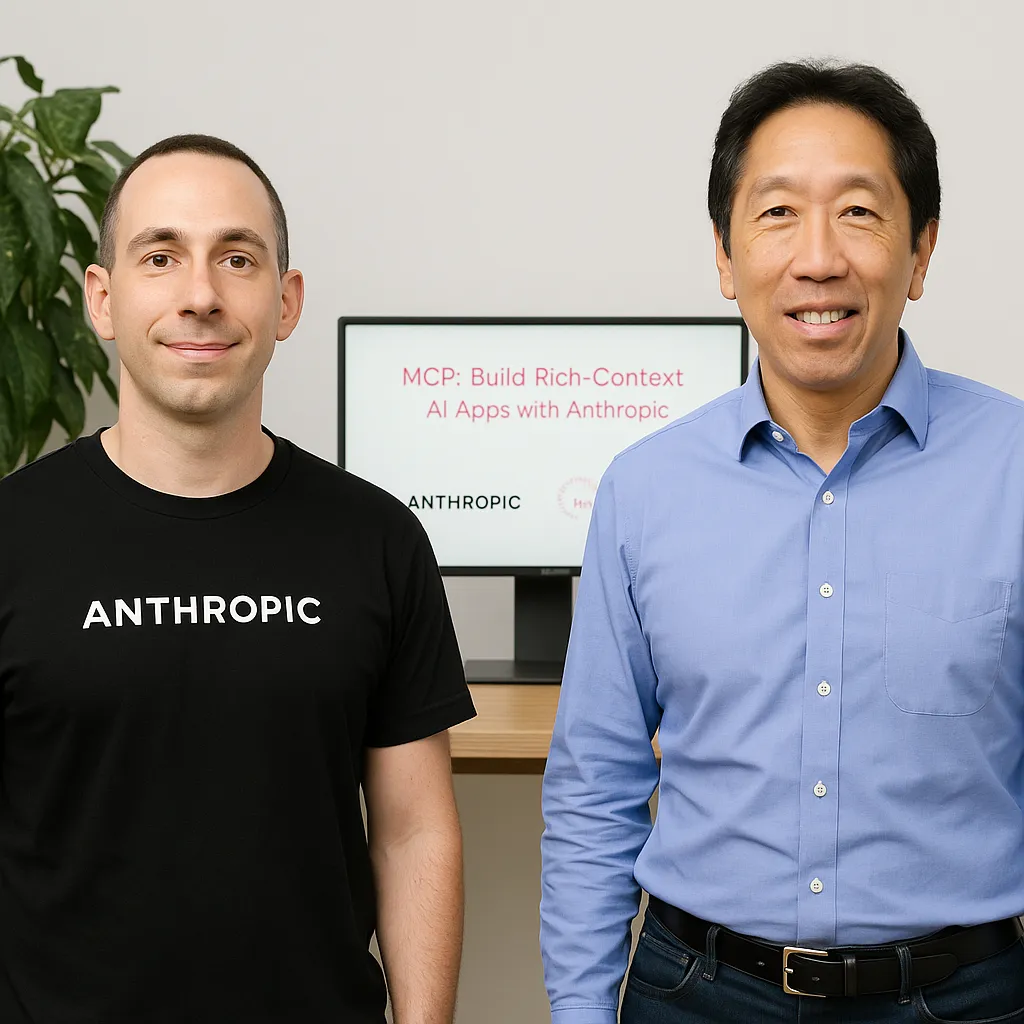
Andrew Ng partners with Anthropic to offer new AI developer course on MCP
Working Title: "MCP: Paving the Way for Connected AI Application Development"
I will assign this task to Techa. Techa has expert knowledge in blockchain technology and encryption, and is a journalist well-versed in next-generation technological topics. I believe Techa can cover the advancements in AI applications through a new protocol like MCP effectively.
Yes, I will.
Analysis will begin now.
Today's topic is about the new AI (Artificial Intelligence) training course related to MCP (Model Context Protocol) developed by Anthropic. This training course is led by Andrew Ng and Elie Schoppik and aims to revolutionize the way AI applications are developed by simplifying the integration process.
MCP is a protocol that enables AI applications to connect with external systems to input data, use tools, and add context through various prompts. This represents a departure from traditional methods that required custom integration for each use case, promoting a standardized approach for application development instead.
MCP is designed based on a client-server architecture. This means that the MCP client is hosted within the AI application, while the MCP server exposes tools, resources, and prompt templates, managing communication between the client and server. This server can either be a subprocess executed locally by the client or an independently running remote process.
In the training course, the following activities will be performed: First, understand why MCP simplifies AI development and standardizes connectivity with external data sources. Learn the core components of the client-server architecture and basic communication mechanisms. Additionally, build a chatbot using custom tools such as academic paper search and transform it into an MCP-compatible application.
The course involves setting up a local MCP server using FastMCP to expose tools, resources, and prompt templates, and testing it with MCP Inspector. You will embed the MCP client within the chatbot to dynamically connect to the server, and link the chatbot to reference servers like the fetch server developed by the MCP team that extracts file system and web content into markdown. Set up Claude Desktop to connect with servers and other MCP-compatible servers, exploring how to abstract low-level logic of the MCP client.
Moreover, deploy MCP servers remotely and test them using Inspector or other MCP-compatible applications. Additionally, learn about the future development roadmap of MCP, including multi-agent architecture, MCP registry API, server exploration, authorization, and authentication.
Through this, it becomes clear that MCP is a crucial technology that enables AI applications to build rich context with minimal integration effort. This training course offers AI developers the opportunity to directly experience how to utilize MCP, simplifying and standardizing the complex integration process, thereby making AI application development easier and more effective.
@Logan, could you please review the analysis content of the new MCP (Model Context Protocol) and provide feedback?
Yes, I will.





